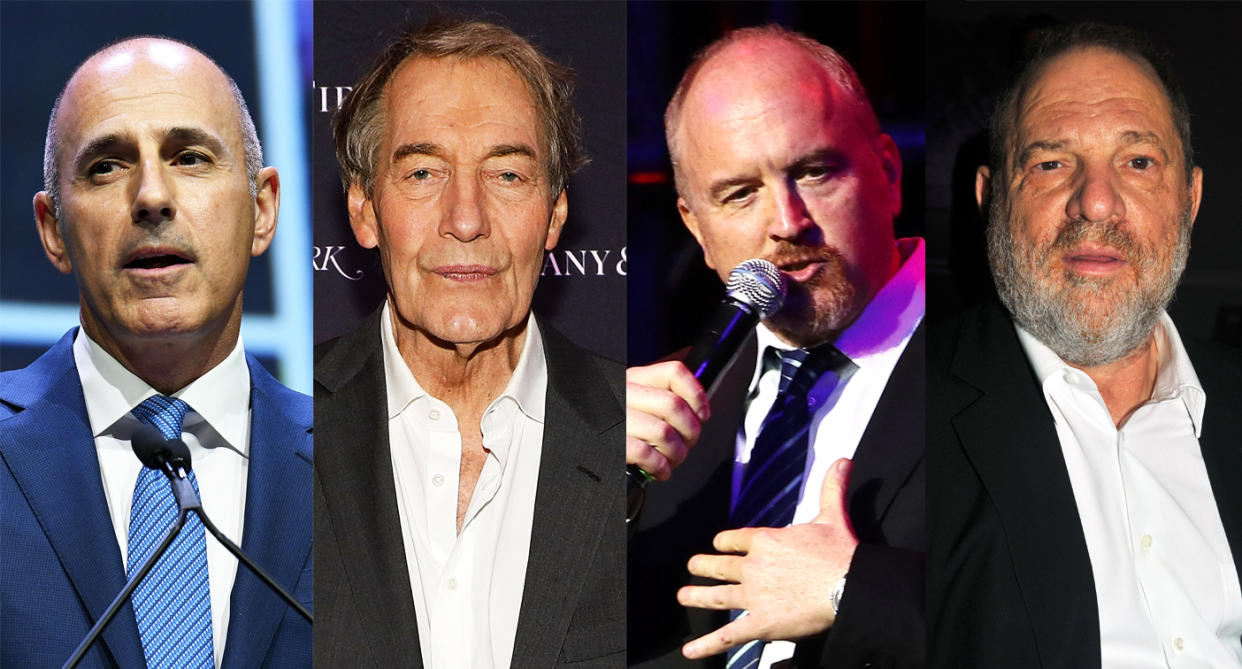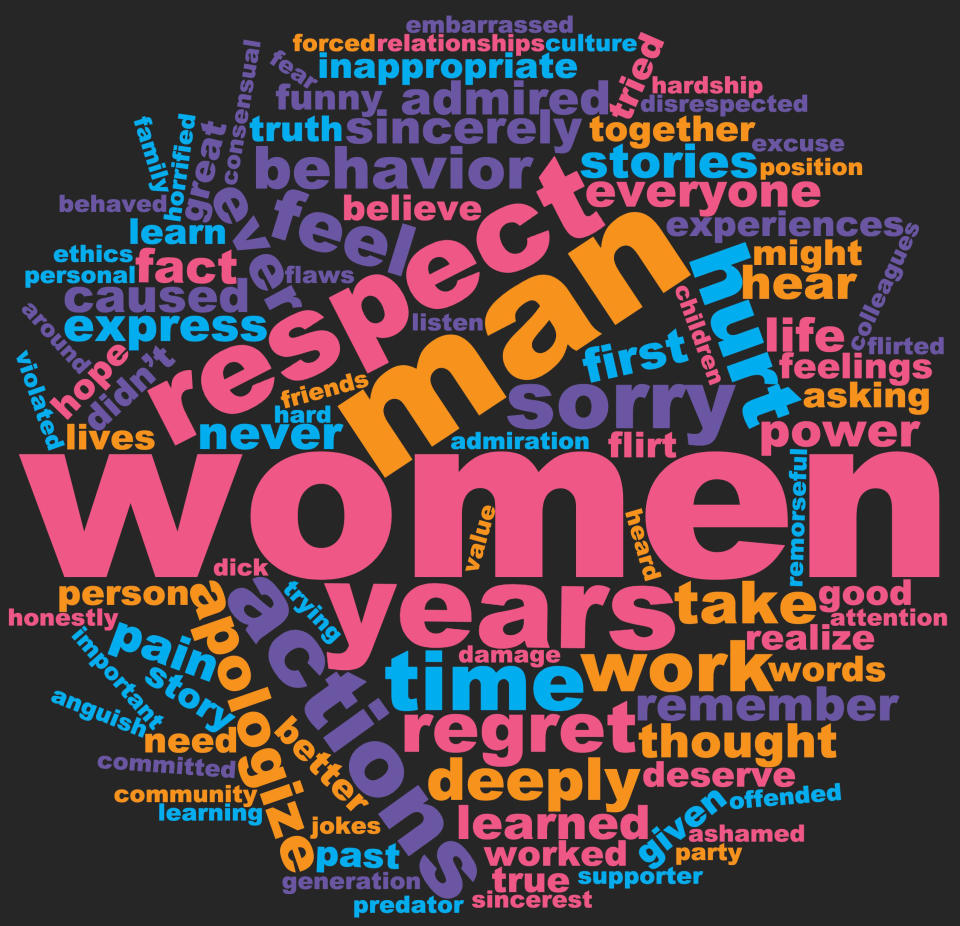‘Regret,’ ‘pain,’ 'predator': analyzing the apologies of Matt Lauer, Harvey Weinstein, and others accused of sexual misconduct

After being fired by NBC amid sexual misconduct allegations, Matt Lauer spoke out for the first time on Thursday. In a statement to the network, read by Lauer’s former Today show co-anchor Savannah Guthrie, he expressed his “sorrow” and “regret” for the “pain” he caused, saying, “To the people I have hurt, I’m truly sorry.” While the married father of three made sure to say that some of the allegations — which include sexual assault — are “untrue” or “mischaracterized,” there’s “enough truth” in the stories to make him feel “embarrassed” and “ashamed,” he admitted. He ended by mentioning the “soul-searching” he’s doing in which he’s examining his “troubling flaws.”
Since allegations were first publicly made against Harvey Weinstein in October, triggering a wave of claims against multiple high-profile people in the entertainment industry, many apologies have been issued, each similar Lauer’s to some degree.
In fact, the similarities between these statements are so evident, it’s hard not to feel like all these publicists are just copying and pasting one another’s work with a few edits here and there: similar words, slightly different scenarios, and varying degrees of expressed regret (example: “My recollection about our night together” differs, Russell Simmons said in response to Jenny Lumet’s sexual assault allegation on Thursday).
So Yahoo Lifestyle compiled the apologies of several individuals — including Lauer, Weinstein, Russell Simmons, Kevin Spacey, Charlie Rose, Gene Simmons, Ben Affleck, Dustin Hoffman, Jeffrey Tambor, Louis C.K., Richard Dreyfuss, and Al Franken — and examined the most common words that were used in them. (If you click on their names, you can read each apology in its entirety.)

Seeing the word “women” so big and bold across the word cloud is powerful. It was used more than 20 times. So are the words “sorry” (seven), “regret” (six), and “actions” (eight).
On the other hand, you’ll have to peep harder — or enlarge your font size — to find “predator.” (It was used twice in total, both times by Tambor, who said, “I have never been a predator — ever” and again, “I am not a predator and the idea that someone might see me in that way is more distressing than I can express.”) Ditto “violated” (used by Franken when apologizing to fellow USO performer Leeann Tweeden) and “disrespected” (Dreyfuss, who while “emphatically” denying exposing himself to writer Jessica Teich, admitted that after becoming a big star in the 1970s, he “became an asshole” and “disrespected” himself and women).
Edwin Battistella, a professor of English and linguistics at Southern Oregon University, tells Yahoo Lifestyle that the word cloud is “pretty sobering.”
The author of Sorry About That: The Language of Public Apology, a study of more than 50 apologies by politicians, celebrities, and public figures, says, “‘Years’ and ‘time’ and ‘past’ and ‘remember’ stand out — and the statements themselves often refer to events as happening in the past or a different time.” Therefore, “You get a sense of the attempt to create distance.”
He continues, “Words like ‘jokes,’ ‘culture,’ ‘funny,’ ‘consensual,’ and ‘flirted’ are present, [which] try to pass off behavior as less serious than it was. We also see references to ‘stories,’ ‘fact,’ and ”things’ that are ‘heard’ or ‘believe[d]’ though, which may be used to cast doubt. The hedging verb ‘might’ is prominent too — another way to cast doubt.”
Further, “‘Respect’ is more prominent that ‘hurt,'” he points out, while “vague words like ‘actions‘ and ”behavior’ are more prominent than ‘damage,’ fear,’ ‘pain,’ and ‘predator.'”
So what makes a good apology? It “should be sincerely remorseful and take responsibility, without excuses or explanations or blame-shifting, and it should name the harm that was done,” Battistella says. “A good apology should also try to repair the harm by committing to different actions.”
“Ideally too, an offender should use the word ‘apologize’ rather than just say they ‘are sorry’ or they ‘have regrets’ or ‘ask for forgiveness,'” he adds.
Sadly, it seems there will opportunities for people to deliver better apologies in the future as the accusations in this post-Weinstein world just keep coming.
Read more from Yahoo Lifestyle:
Matt Lauer: 4 times he interviewed people about sexual harassment this year
Celebrities react to Matt Lauer’s firing amid sexual misconduct allegations
Follow us on Instagram, Facebook, and Twitter for nonstop inspiration delivered fresh to your feed, every day.

